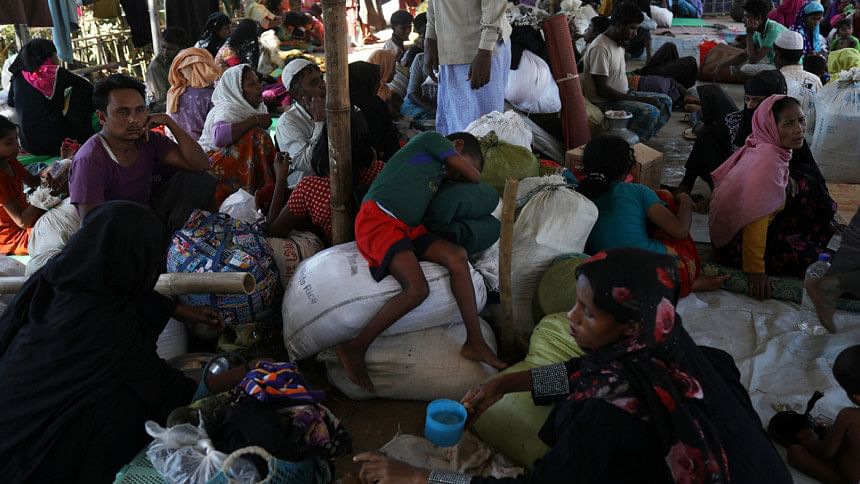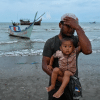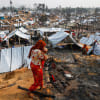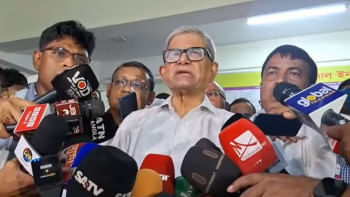Rohingya Repatriation: India for systematic verification process

India has said Bangladesh and Myanmar should implement a systematic process of verification to facilitate the repatriation of Rohingyas.
It said the United Nations Human Rights Council (UNHRC) should help Myanmar carry out its responsibilities towards its own people.
India gave the opinion in its explanation prior to the vote on a resolution at the 27th special session of the UNHRC in Geneva on Tuesday. The resolution dealt with the human rights situation of the Rohingya Muslim population and other minorities in Myanmar's Rakhine State.
The resolution was passed by 33 votes. Nine countries, including India, refrained from voting while China, Burundi and the Philippines voted against the resolution.
India said the UN body should encourage the two countries to work together to restore normalcy in Rakhine.
It also requested the UN high commissioner for human rights to track the progress concerning the human rights of Rohingya people, and to provide oral updates to the UNHRC for a period of three years.
The resolution strongly condemned the alleged systematic and gross violations of human rights and abuses committed in Myanmar, particularly in Rakhine, notably against people belonging to the Rohingya Muslim community and other minorities.
According to UN office, Saudi Arabia and Bangladesh took the floor to introduce the text of the resolution.
CHINA FOR FACILITATING REPATRIATION
China has said the international community should encourage Bangladesh and Myanmar to work together to facilitate the repatriation of refugees.
Explaining its stance prior to the vote, China said it fully understood the challenges faced by Bangladesh, and bilateral negotiations between Bangladesh and Myanmar were the only solution to the crisis.
The signing of a repatriation instrument between the two countries was an important step forward, China observed.
“What was now important was to create favourable conditions and a favourable atmosphere in order to implement the agreement,” reads the Chinese observation.
It said the resolution could complicate the implementation of the repatriation agreement. “Based on that position, China called for a vote on the draft resolution and it would vote against it.”
China said the root causes of the conflict, poverty in Rakhine, should be addressed. It condemned the violent attacks in Myanmar and supported the country in upholding peace and security.
The Asian giant said it believed in dialogue and consultation as the only way out and it had proposed a three-phase solution to the crisis, according to the UNHRC document obtained by UNB.
After the adoption of the resolution, Bangladesh spoke on behalf of the Core Group of sponsors. The USA, Egypt and Indonesia took the floor in an explanation of the vote.
Bangladesh bore the burden of nearly one million Myanmar nationals, out of which 626,000 entered the country in the past three and a half months.
Meanwhile, Russia shared concern about the crisis in Rakhine.
It welcomed the recent stabilisation of the situation in Rakhine, and called on all sides to refrain from actions that would further destabilise it.
“That was the only way to find a solution for the Muslim minority in the country and to respond to the massive displacement of the population to neighbouring Bangladesh,” said the representative of the Russian Federation during the general debate on the draft resolution.
Russia called on the Myanmar government to establish conditions for the peaceful coexistence of all communities.

 For all latest news, follow The Daily Star's Google News channel.
For all latest news, follow The Daily Star's Google News channel. 








Comments